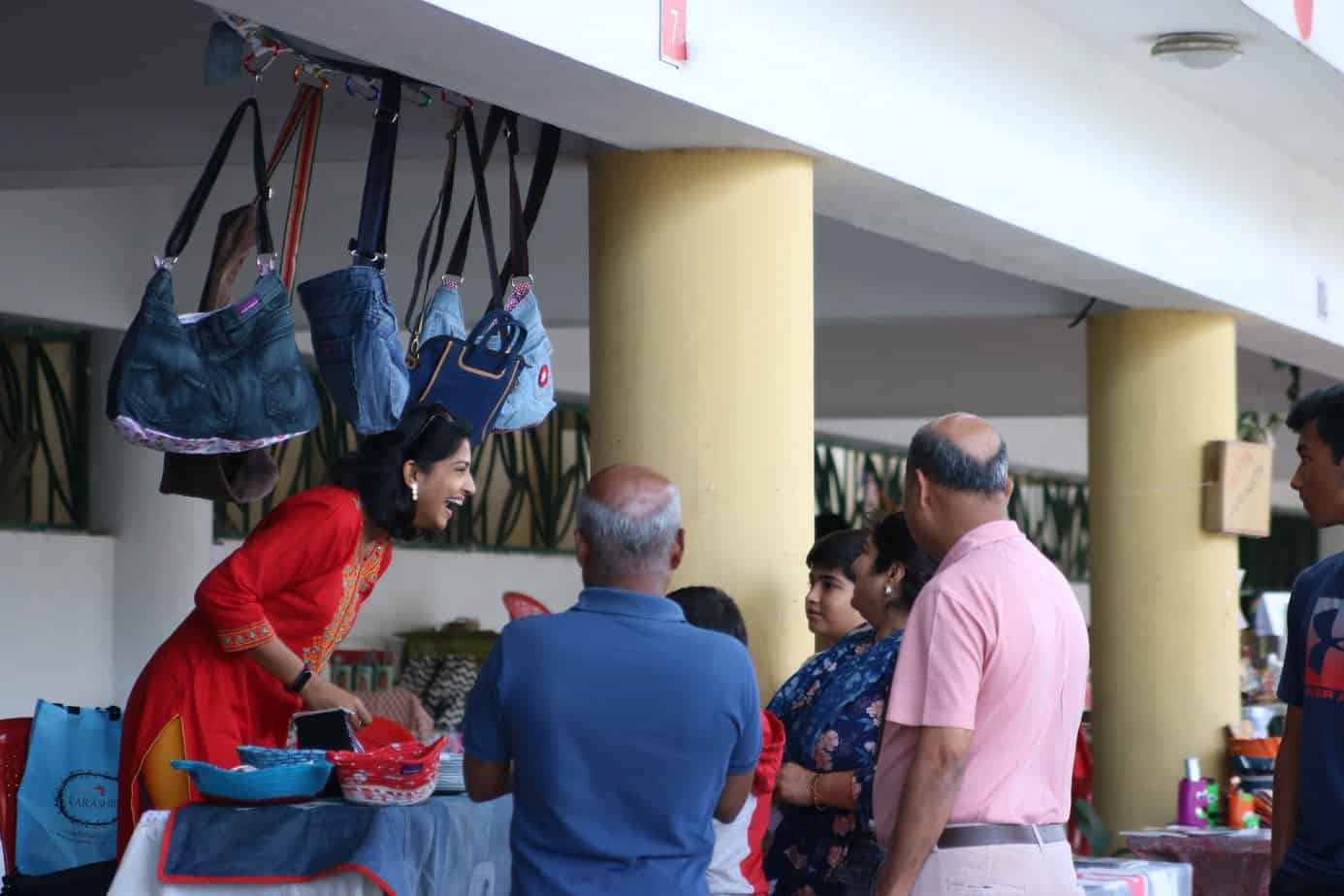Bengaluru’s waste problem is worsening by the day. According the to city’s draft Master Plan (RMP 2031), over 10,500 tonnes of waste will be generated everyday within BBMP limits, by 2031.
But each of us can easily reduce waste if we purchase consciously. This was the concept behind a flea market organised by the volunteer group Second to None, in collaboration with Citizen Matters, last Saturday. Second to None is an online community that helps connect citizens across Bengaluru to buy and sell used, recycled and upcycled products. They also organise flea markets where you can buy these products in person.
Over 20 vendors – including small businesses and independent craftspeople – sold their ware at the Saturday event in Rangoli Art Centre, near MG Road Metro station. Materials that were still functional had been recycled; in some cases, a material that had already served its purpose had been altered for a new purpose. The event gave citizens an opportunity to find products that would otherwise have turned into waste.
Sudeep Singh, who attended the event, said, “We can’t keep making waste in this world because then we’ll only have garbage around. If we reduce, reuse, recycle, we’ll live longer and better.” Singh had come with his family, including his visiting nephew from the US. This wasn’t their first time at a Second to None event.
Bags, vases, home decor, furniture – all from waste
- Denim is a material that is frequently disposed of instead of being recycled or reused. Bluemadegreen is a small business whose products range from backpacks and bags to water bottle sleeves, all made from denim. “We take waste from tailoring shops—they usually just burn it or dump it,” founder Prabha Rajkumar says. “We collect the waste on a monthly basis, sort it out, segregate and make all these products.”
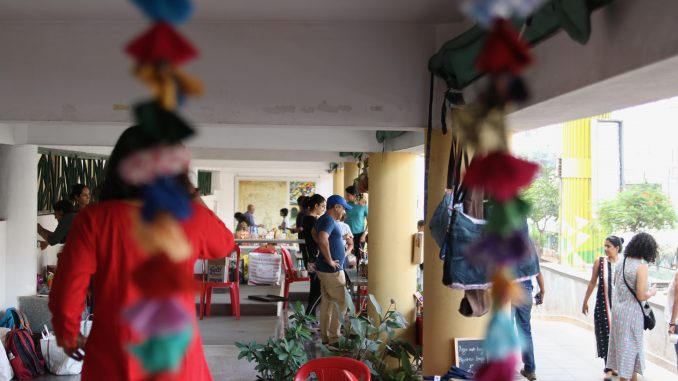
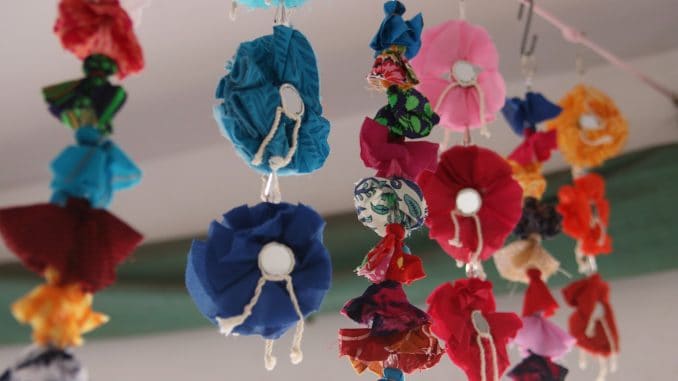
- Another upcycling vendor was Anu Life, which started operations in 2009, and makes bags from used juice boxes and milk cartons. “Anu Life means a new life for the women,” Mary-Ann, Business and Sales Manager at Anu Life, explains. “We have about 10 women here, they do housework outside of here, and then they come and make bags.”
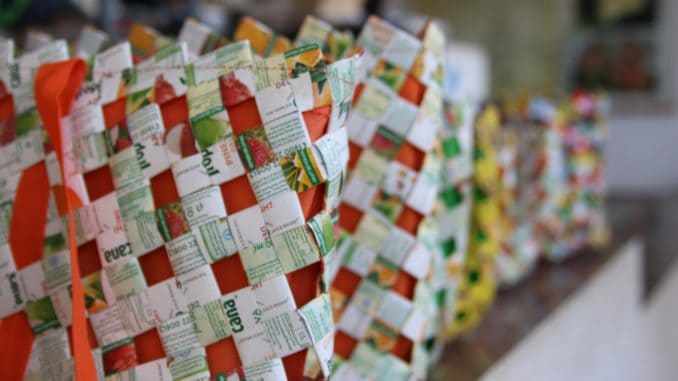
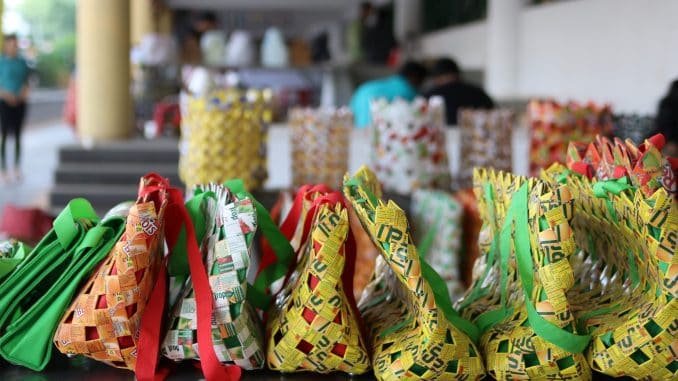
- Anand Belur’s stall Eleventh Hour offered an array of potted plants in empty coconut shells and old hand-painted bottles.
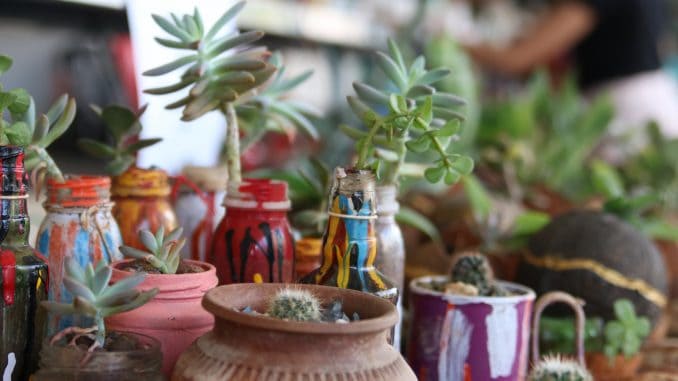
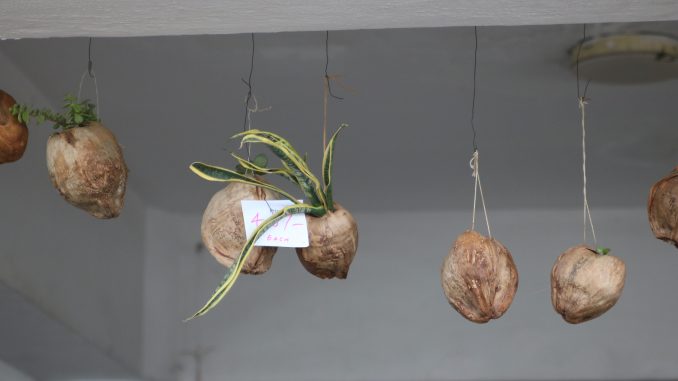
- This was the first time the group ‘The Metta Community’ sold their products to the public. This group of friends uses waste to make home decor items.
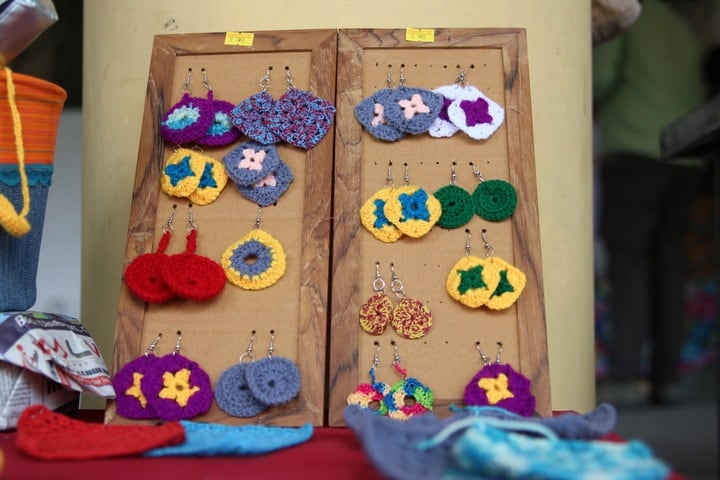
- Parents with children in tow meandered through the stalls, some even getting educated by SwachaGraha’s composting expert, Vani Murthy. Also educating shoppers and passersby were Hasiru Dala, an organisation that advocates for waste pickers’ wellbeing, and the Rose Valley Farming Collective in which individuals or groups can become farm owners.
- One stall sold a variety of used books that people spent time perusing through.
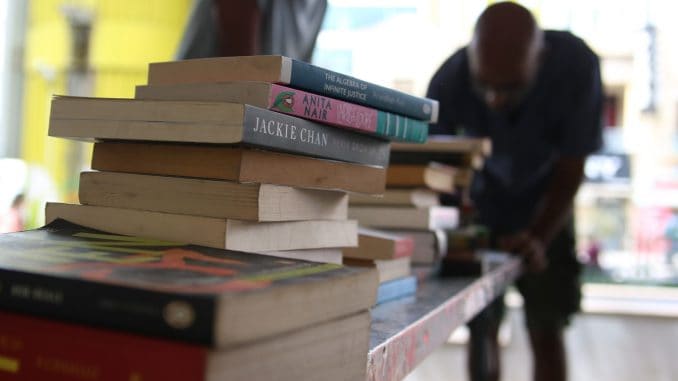
- The Precious Paws Foundation sold handcrafted bottles that will help them in their mission to house stray dogs.
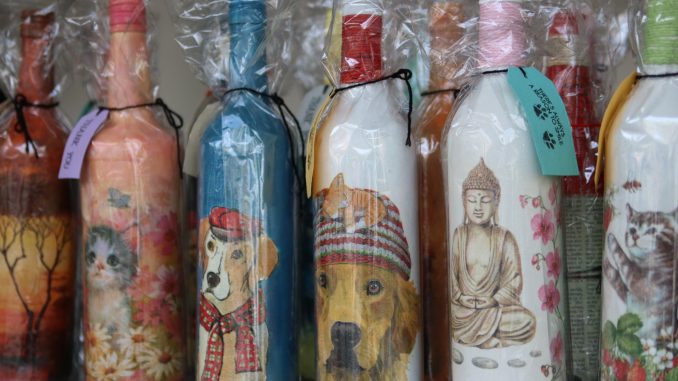
- Lavannya Goradia and her team were at the market representing Studio Alaya Projects, an upcycled furniture business.
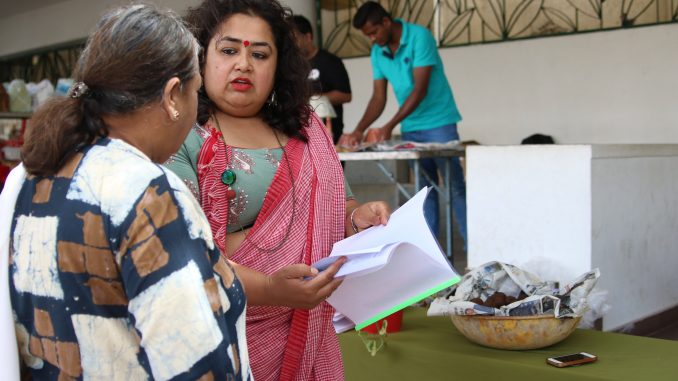
- Ethnocraft is another business which gives women an opportunity to earn money by making cloth bags from upcycled materials.
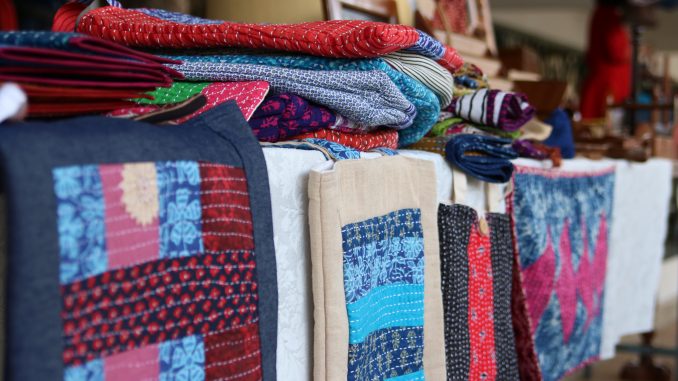
Citizen Matters was a partner in this event. Proceeds from the pre-loved items stall would be supporting Citizen Matters articles on making Bengaluru water secure.
[All photos by Grace Madigan]
